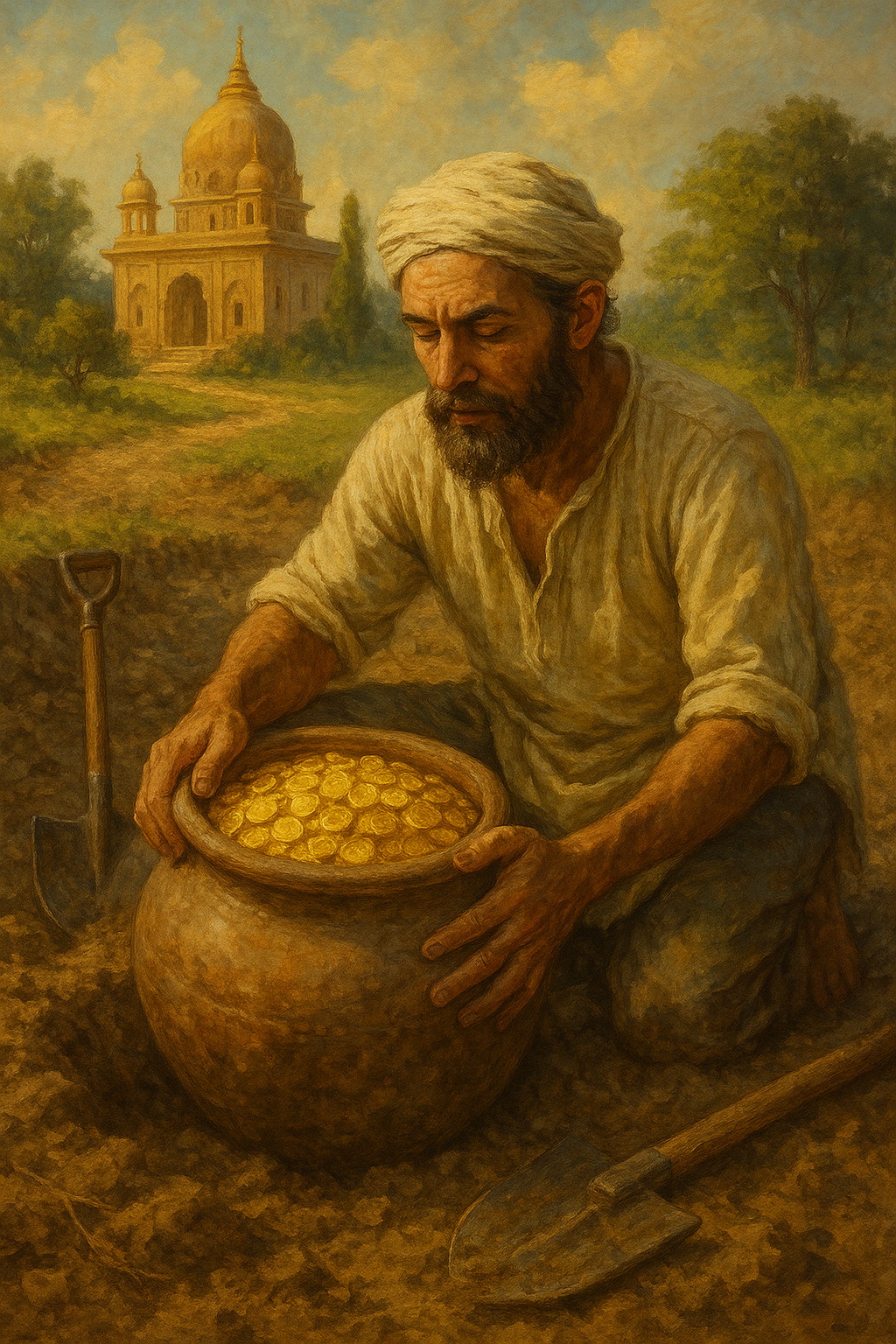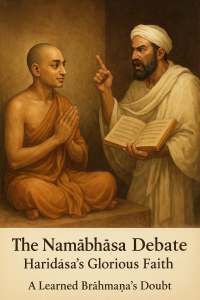Based on The Faith Book by Kadamba Kanana Swami
An Honest Hand in the Earth
In the heat of a summer day, a humble carpenter was digging a foundation in a field. His hands, rough from years of shaping wood, struck something hard. Clearing the dust, he uncovered a large clay pot—and inside it, shining like the midday sun, was a heap of golden coins.
The Temptation and the Test
His heart raced. Never had he seen such wealth. His family had known only poverty, and with this treasure, he could live like a king. Yet something stopped him. He sat beside the pot and closed his eyes. “This is not mine,” he whispered. “This is a test from the Lord.”
The Journey to the Guru
Without taking a coin, he wrapped the pot and brought it to his guru—a revered sādhu known for his wisdom and renunciation. Bowing down, the carpenter said, “This has come into my hands. I seek your instruction. What shall I do?”
The Guru’s Simple Command
The saint opened his eyes and smiled. “Keep it,” he said, “but let it never be for your sense enjoyment. Use every coin in service to the Lord. Build a place where the name of Kṛṣṇa will be chanted, where devotees will gather, and where your hands—blessed by honesty—can serve eternally.”
From Gold to Glory
And so, the carpenter built a beautiful temple, not grand with marble, but soaked with devotion. He carved altars, doors, and beams with his own hands. Every coin was spent on offerings, kīrtanas, and prasādam. The village that once knew him as a simple worker now sang his glories as a pure servant of God.
The Wealth of Renunciation
This story teaches us that the real value of wealth lies in how it is used. Riches can corrupt or purify, depending on the heart that holds them. The carpenter could have claimed the gold as destiny—but he chose to see it as seva, sacred opportunity for service.
A Verse to Remember
yajñārthāt karmaṇo ‘nyatra
loko ‘yaṁ karma-bandhanaḥ
tad-arthaṁ karma kaunteya
mukta-saṅgaḥ samācara“Work done as a sacrifice for Viṣṇu has to be performed; otherwise, work binds one to this material world.”
— Bhagavad-gītā 3.9



